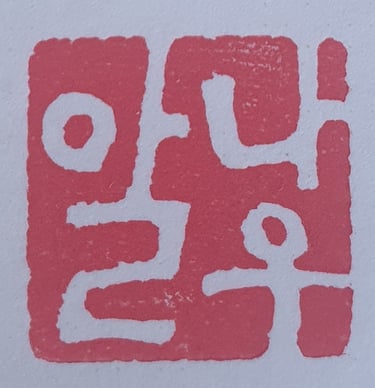Children's day - 어린이날
Children's Day in Korea: A Celebration of Joy and Smiles
Children's Day (어린이날), celebrated every year on May 5th in South Korea, is a national holiday dedicated to children, synonymous with happiness, play, and moments shared with family. This day is a true tribute to childhood, during which parents and society as a whole show their appreciation for the younger generation, pampering them with gifts, festive activities, and attention. More than just a holiday, Children's Day in Korea highlights the importance of the well-being and harmonious development of children in Korean society.
Origins of Children's Day
Children's Day in Korea was established in 1923 by Bang Jeong-hwan (방정환), a writer and activist who fought for children's rights during the Japanese colonial period. At a time when children were often neglected, abused, or ignored, Bang Jeong-hwan sought to emphasize the importance of respecting their rights and education. His goal was to promote children's happiness and raise awareness in society about their well-being. He was one of the pioneers of the children's rights movement, and thanks to his commitment, Children's Day was born.
May 5th was officially designated as a national holiday in 1975, in response to the growing recognition of the importance of children in society. Since then, this day has become a major event in the Korean calendar, celebrated enthusiastically and joyfully by families throughout the country.
Festive Activities
May 5th is a day dedicated to fun and happiness for children. Numerous activities are organized across the country to celebrate this occasion. Parks, zoos, museums, and cultural centers offer free or discounted admission for children, and many special events are arranged.
Family Outings
Korean families often take advantage of this day to go out to amusement parks, zoos, or aquariums. National parks and urban parks become gathering places where parents and children play together, have picnics, and participate in outdoor games. Children engage in activities such as kite flying, sack races, or ball games, while the parks fill with laughter and joyful exclamations.
Shows and Special Events
Across the country, children's shows, parades, theatrical performances, and concerts are organized. Clowns, puppets, and street performers animate downtown areas, creating a festive atmosphere. Cultural centers and libraries host craft workshops, drawing contests, and storytelling sessions, encouraging creativity and imagination among the youngest.
Gifts and Surprises
Children eagerly anticipate this day, knowing they will receive gifts. Toys, stuffed animals, video games, and sometimes even clothing are given as signs of love and appreciation. Shopping malls and stores are filled with special offers for Children's Day, allowing parents to pamper their little ones with surprises.
Symbolism of Children's Day
Children's Day is much more than a day of entertainment. It represents an opportunity to recognize the value and importance of children in society. In Korea, children are seen as the future of the country, and this day reminds everyone of the essential need to take care of them, respect their rights, and provide them with a healthy and nurturing environment to grow up in.
The values conveyed through this day are love, respect, and responsibility towards the younger generation. By celebrating children, parents strengthen their commitment to supporting their emotional, intellectual, and physical development. It is also a time to encourage children to express their dreams and aspirations through playful activities and family discussions.
Children as Jewels of Society
Bang Jeong-hwan, the founder of this holiday, referred to children as "the jewels of the nation." His ideal was for children to be raised with respect, dignity, and encouragement, enabling them to become responsible and fulfilled citizens. This idea remains at the heart of Children's Day in Korea. On May 5th, children are treated like kings and queens, surrounded by love and joy, to remind them how precious they are.
The Evolution of Children's Day in Korea
As Korea modernizes rapidly, the way Children's Day is celebrated has also evolved. Today, urban families often organize sophisticated outings, such as visits to theme parks or high-tech shopping malls, while families living in rural areas may celebrate more simply, by organizing outdoor picnics or traditional activities.
However, one thing remains constant: on May 5th, children are the center of attention, and this national holiday is a day when everyone, regardless of age, remembers the importance of childhood and the joy it brings to life.
Conclusion: A Day Full of Happiness
Children's Day in Korea is much more than a day off for children. It is a celebration of childhood in all its splendor: joy, innocence, and potential. This day reflects Korean values that emphasize family, respect, and shared happiness. On this day, Korea transforms into a vast playground, where laughter and smiles are the order of the day.
So, if you have the opportunity to be in Korea on May 5th, let yourself be swept away by the festive atmosphere, join in the laughter of the children, and discover what it feels like to recapture the magic of childhood, if only for a day!

